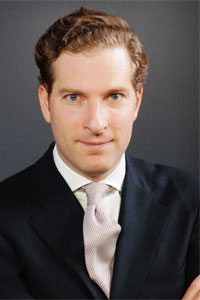
It's good news that women will soon be able to drive in Saudi Arabia. But as a milestone, it isn't primarily a marker of sex equality, which remains a distant objective in the kingdom. Rather, it's an important indication that the monarchy now thinks it doesn't have to defer to the country's religious establishment.
That's a remarkable development that may allow some modernisation -- but also heralds a move away from the separation of powers and toward consolidation of absolute authority in a totalitarian king.
Although it's little understood in the West, the Saudi dynasty was built on a foundational partnership between kingly and religious authority. On the worldly side was the royal House of Saud, going back to the 18th century founder Muhammad bin Saud. On the spiritual side was what is called the House of the Sheikh. That name refers to the Arabian sheikh par excellence: Muhammad Ibn Abd al-Wahhab, the 18th century founder of Wahhabism.
The partnership's modern form was established during the career of Abdulaziz Ibn Saud, the founding monarch of the current Saudi state, who died in 1953. The basic constitutional idea is that the religious scholars, associated with the House of the Sheikh, provide the formal legal justification for the monarch's rule.
In theory, the scholars get to determine what rules are consistent with Islamic law. The monarch then carries out those rulings. His authority to govern legitimately is ultimately supposed to rest on his compliance with the Shariah as interpreted by the scholars.
In practice, like all separation of powers, however rudimentary, there is negotiation and compromise. Oil wealth has given the monarchy far more influence and therefore room for manoeuvre than it would otherwise have. Scholars can be co-opted or at least influenced through lucrative government posts.
But the religious scholars have never forgotten that their institutional power can only be preserved if they continue to say no to certain reforms sought by the monarchy. The scholars' background threat is that they might withdraw their support for the monarch. They couldn't bring down a king on their own, but they could lend their moral support to a coup. That has been all the leverage they traditionally needed.
The ban on women driving has long been a highly visible, symbolic instance of the religious scholars' exercise of a veto power over the monarchy. For least 25 years, perhaps longer, Saudi kings have been delicately exploring the possibility of allowing women to drive. But the scholars have always given a clear no.
The reason had less to do with any really compelling principle of Islamic law than with the scholars' institutional need to demonstrate their authority. Religious conservatism is the scholars' brand and the source of their power. That's why the driving announcement is so important for the distribution of power in the kingdom.
King Salman is engaged in a historic experiment: the most significant attempt to consolidate the monarch's power in the last 75 years of Saudi history. That involves marginalising the rest of the royal family and focusing authority in his son, Crown Prince Muhammad bin Salman. Crucially, it also involves weakening the authority of the religious establishment.
By permitting driving, King Salman is telling Saudis that the clerics now have less power than they did before. And he's sending a message to the clerics themselves: Be flexible or be ignored.
This is a delicate game, to say the least. The steps King Salman and Crown Prince Muhammad have taken to centralise power leave them vulnerable to pushback from other members of the royal family who might fantasise about trying to replace the crown prince and maybe even his father. Alienating the religious establishment would give clerics the incentive to back a competing candidate.
In a sense, then, this is a test of the traditional system of clerical influence. The king and the crown prince are betting that the old system has been sufficiently weakened that it will now fail.
If that happens, the consequences will be major -- and very tricky.
From the standpoint of many Western onlookers, the collapse or at least great weakening of the conservative religious scholars will seem like a happy result. After all, the scholars have long blocked egalitarian reforms.
Yet it's important to remember that, notwithstanding their conservatism, the scholars have also balanced and to a degree checked the monarchy. Unfettered power tends to become not merely authoritarian, but totalitarian. And an unchecked monarchy may in the long run have drawbacks for Saudi subjects, male or female.
It's natural to celebrate allowing women to drive. But real sex equality is still several generations away in Saudi Arabia, if that. The true development is yet another increase in royal prerogative. The experiment is under way. The outcome remains uncertain. - BLOOMBERG VIEW
Noah Feldman, a Bloomberg View columnist, is a professor of constitutional and international law at Harvard University and the author of seven books including 'The Three Lives of James Madison: Genius, Partisan, President'.
